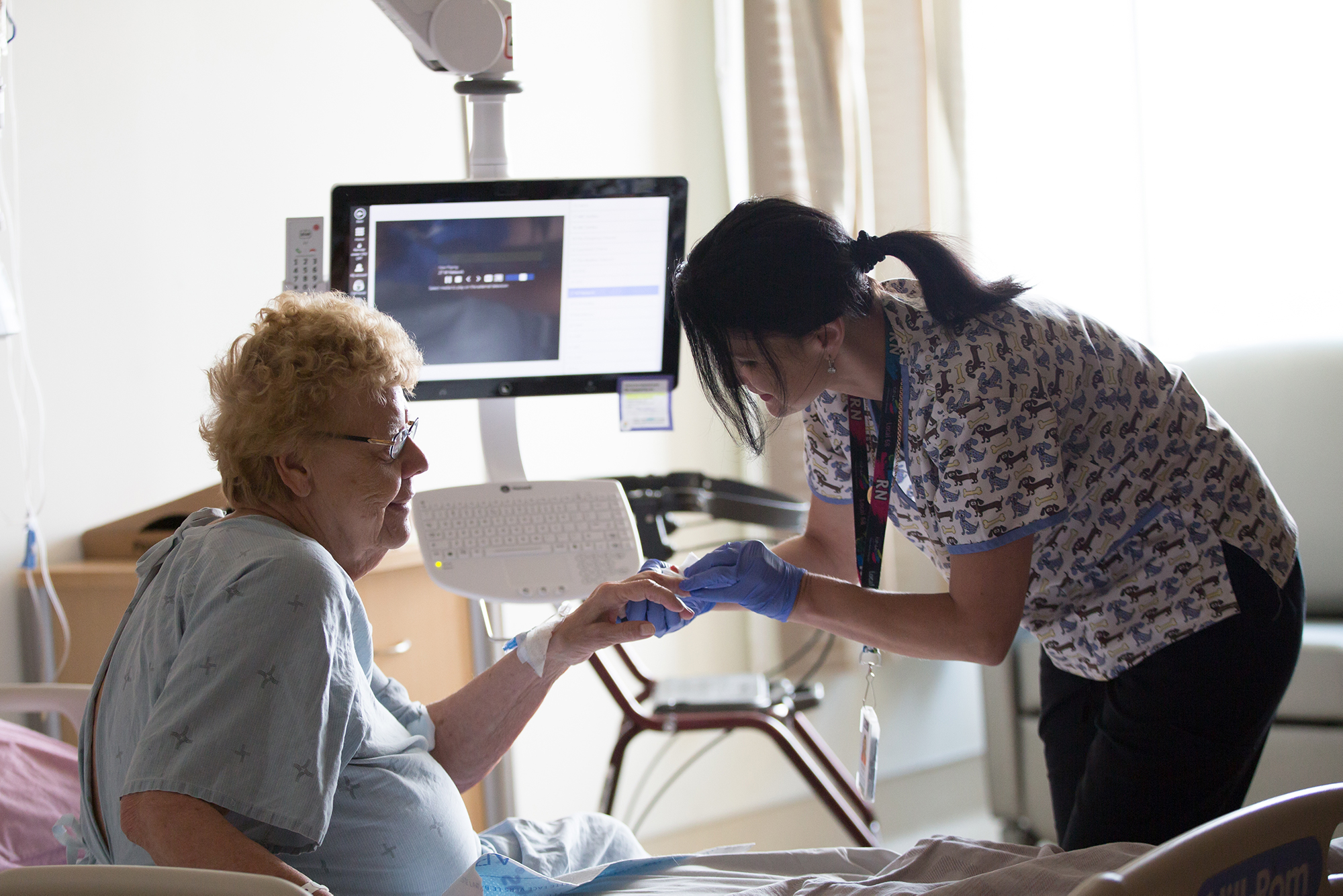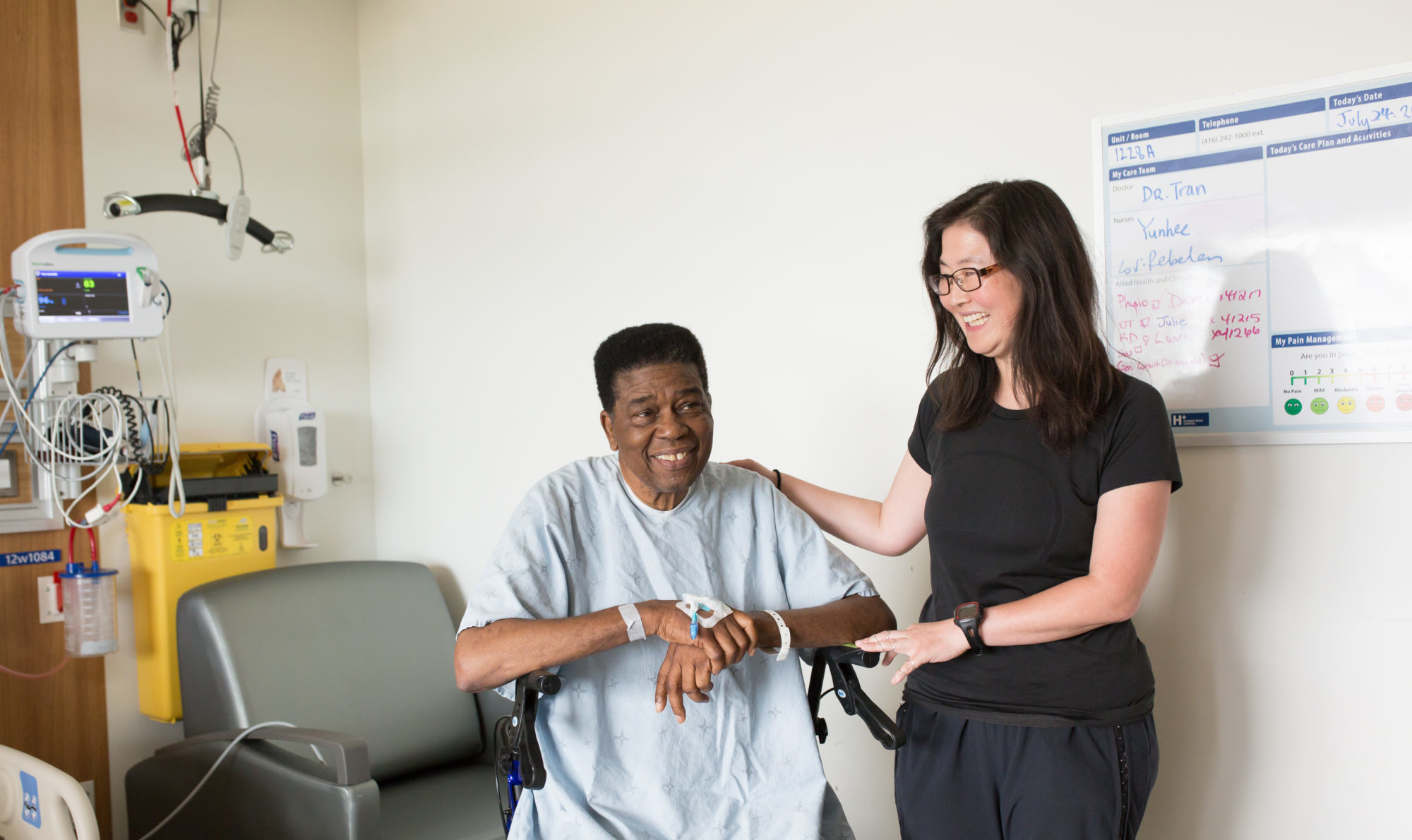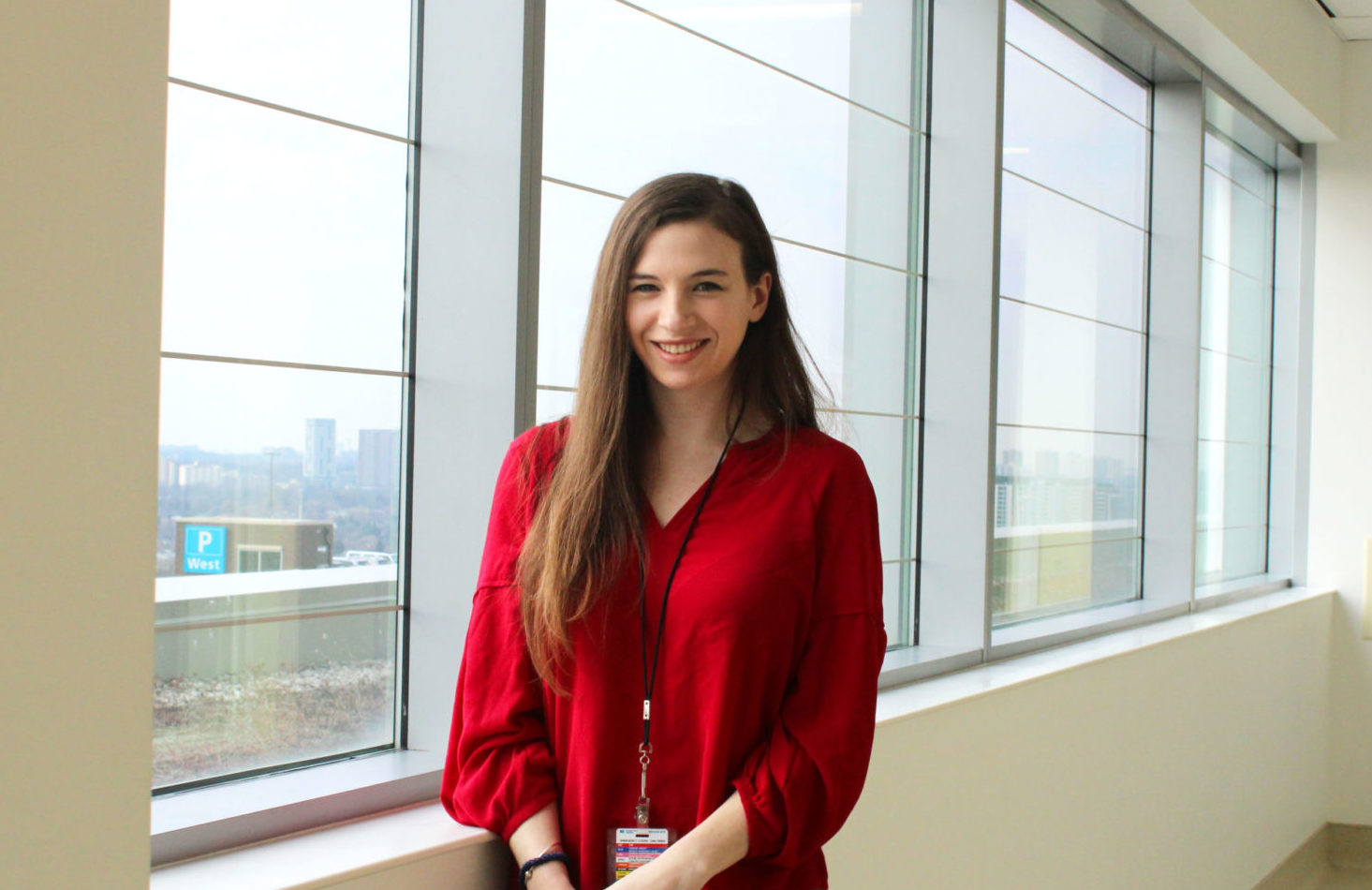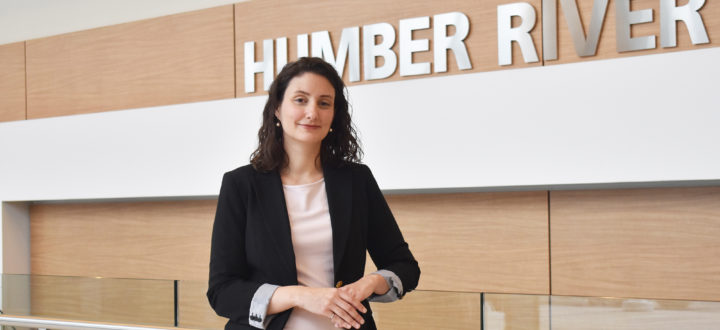Interview: Jillian Scandiffio, Research Assistant, Humber’s Elderly Assess and Restore Team (HEART)
Tell us a little about yourself.
My name is Jillian Scandiffio and I am the Research Assistant for Humber’s Elderly Assess and Restore Team (HEART).
I joined the team in November 2020 after finishing my Master’s at Queen’s University, where I researched the role of physical activity and sedentary behaviour in adolescence and their associations with the risk of developing type 2 diabetes in adulthood. I also worked on a health quality project that studied the barriers in education for students with disabilities.
How would you explain your job to a friend?

“Sometimes when seniors end up in a hospital, they are at risk of functional decline,” says Jillian. “HEART is trying to prevent that.”
We’re studying the role the HEART program plays in helping seniors return home safely from the Hospital, by analyzing health records and also by interviewing participants in the program.
What is HEART and why is it important?
Sometimes when seniors end up in a hospital, they are at risk of functional decline. HEART is trying to prevent that. Our HEART team includes physiotherapists, occupational therapists, rehabilitation assistants and a registered practical nurse. They provide daily treatment for our HEART patients so that they can go home with an improved level of function, and so that we can prevent them from needing to come back.
The HEART team also follows up with patients and makes sure they have everything they need to stay home safely after they leave the Hospital.
There is currently no literature on this, so researching HEART will help us determine whether we should expand the program further at Humber, and whether this is something other hospitals should be doing too!

“Our HEART team includes physiotherapists, occupational therapists, rehabilitation assistants and a registered practical nurse,” says Jillian. “They provide daily treatment for our HEART patients so that they can go home with an improved level of function.”
Is there anything you can share about how the research on HEART is going?
It’s early for results, but we have reached some pretty big milestones! We have established the questions we are trying to answer, what we are measuring, and the exact ways that we will do our research. We also submitted everything to the Research Ethics Board and it has already been approved, which is fantastic.
We have also begun the first part of our study, which is to review data from the charts of all patients who were eligible for HEART from September 2018 to March 2020. This allows us to study everyone who took part in the program and compare them directly to similar patients who were eligible but didn’t take part, studying the difference in their outcomes.
Our research will also include in-person interviews with participants, which are currently on-pause with COVID – but that hasn’t slowed us down, since we are focussing on the data first.
What do you love about your job?

“I’m inspired by the possibility that our research could have real-world implications for clinical practice and policy that would help a lot of people,” says Jillian.
The work I’m doing at Humber is similar to my work at Queen’s where I was able to work with a large data set of thousands of people. Large data sets have the possibility of really making a difference, and I love that kind of work.
With HEART, we might be producing something with truly meaningful results. This could change how things are done, not just at Humber, but at other hospitals too. The results aren’t just for us, they’re for the broader scientific community.
What inspires you?
I’m inspired by the possibility that our research could have real-world implications for clinical practice and policy that would help a lot of people.
I’m also very lucky to be working with Beatrise Edelstein, the Program Director of Seniors Care. She has so much knowledge and passion and that rubs off on all of us around her!






